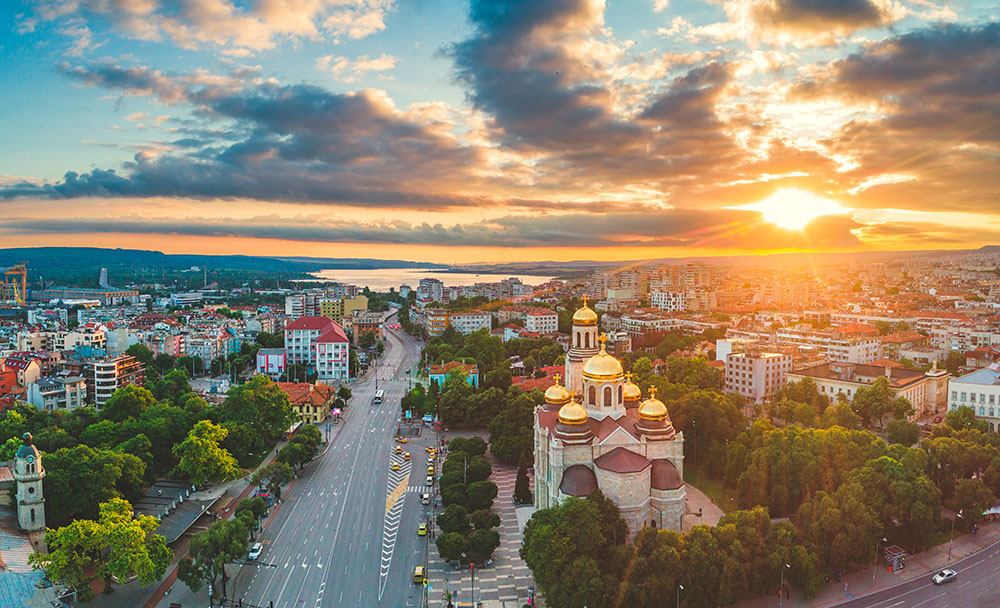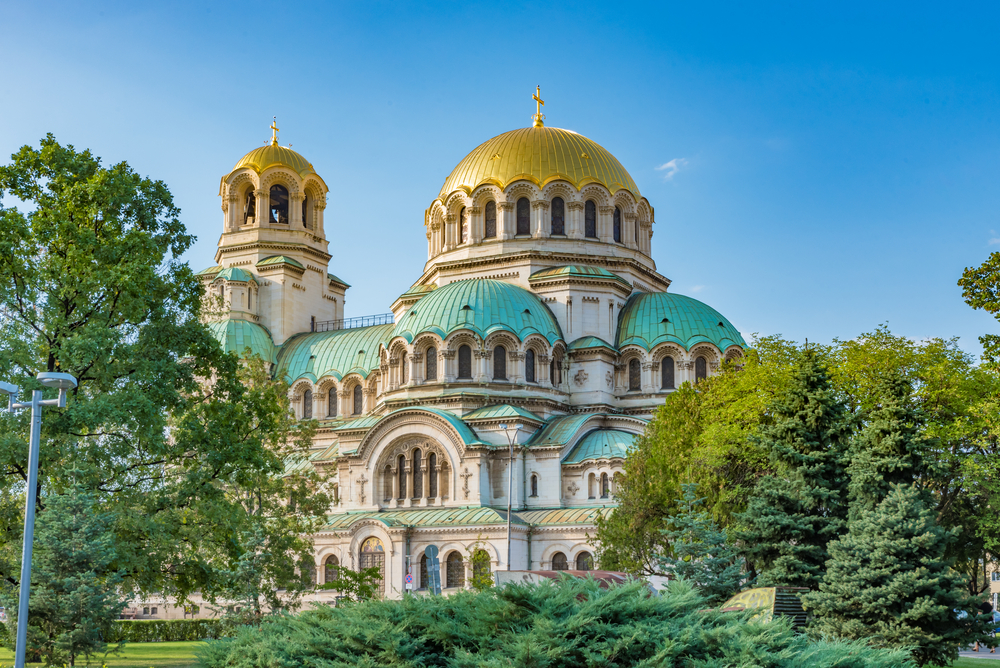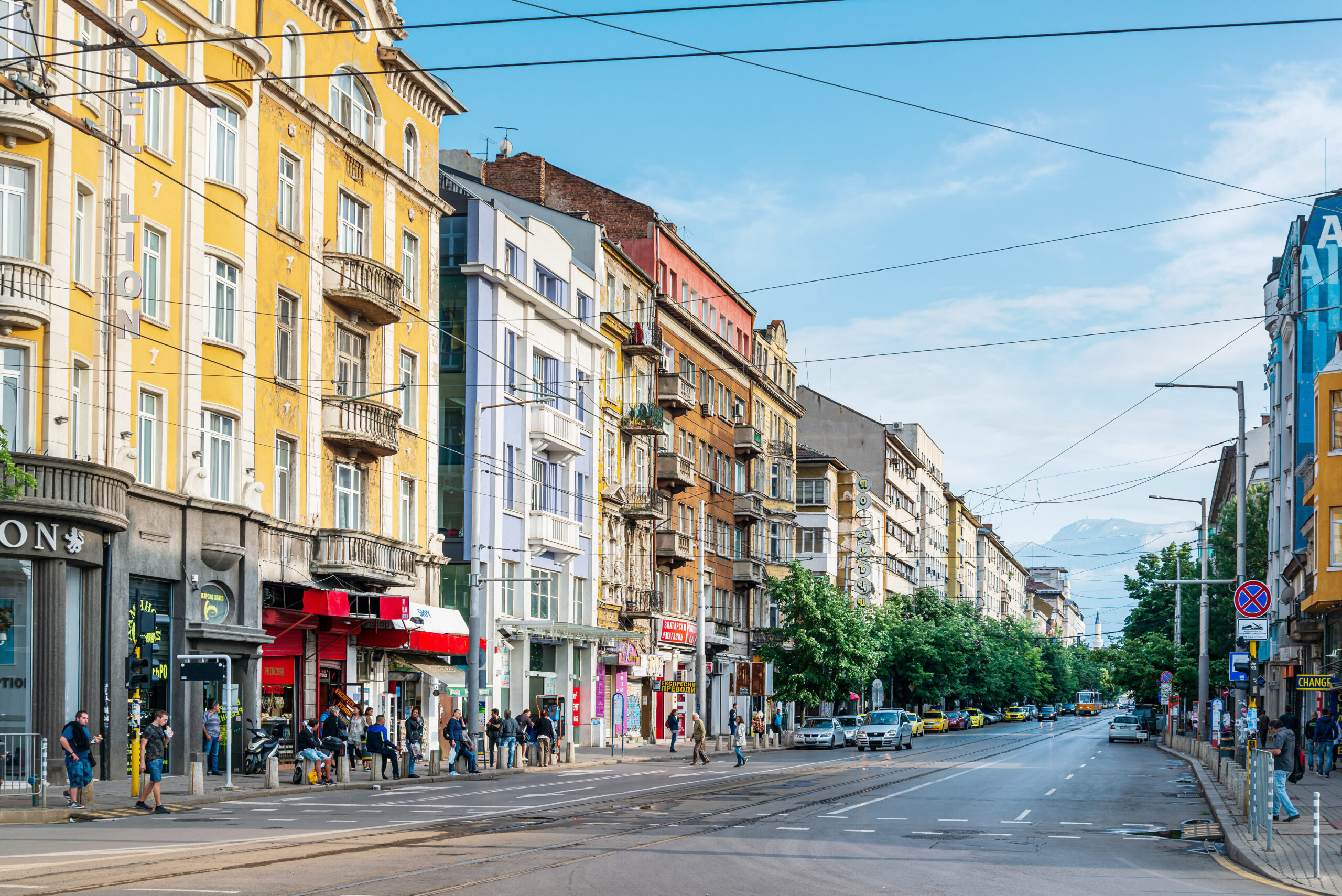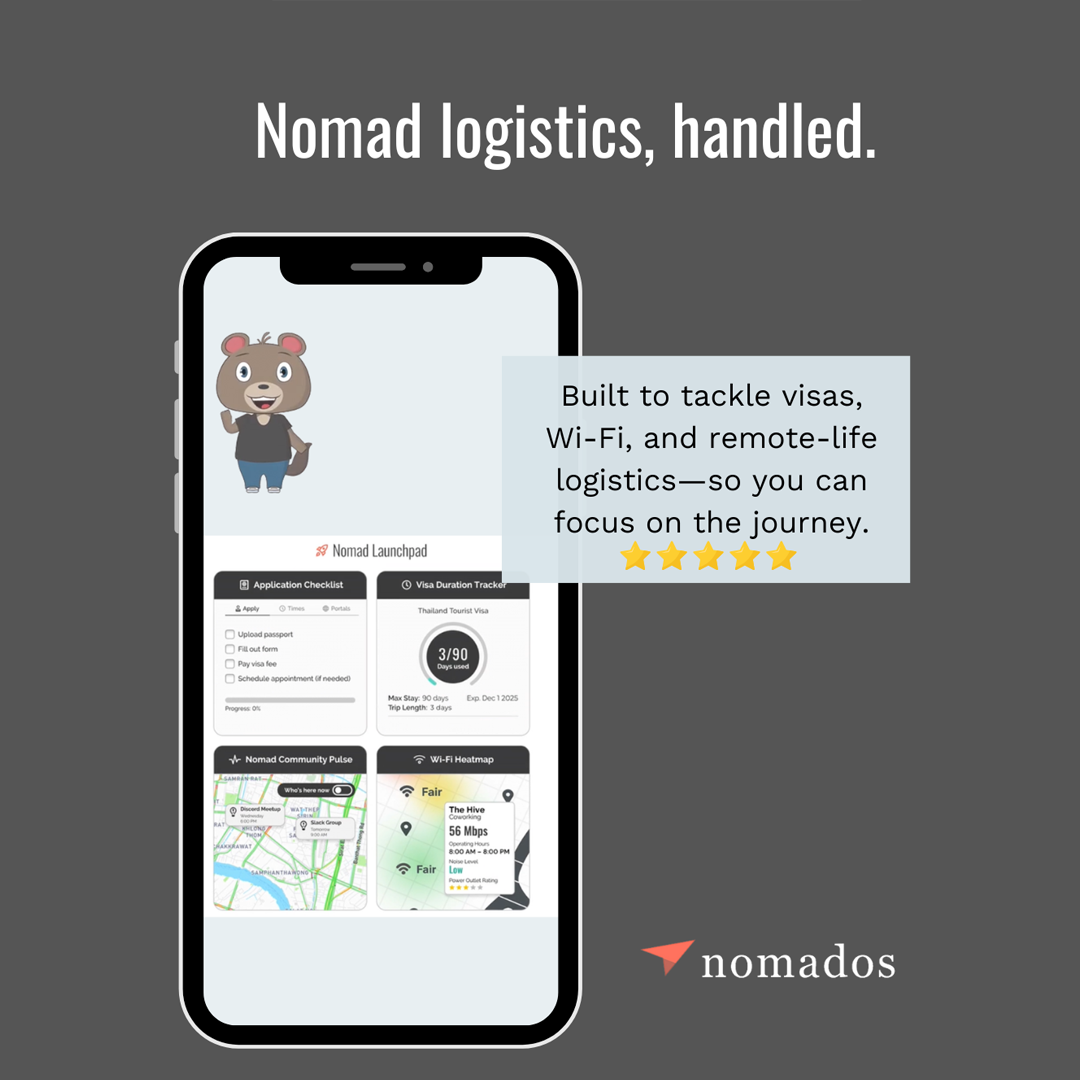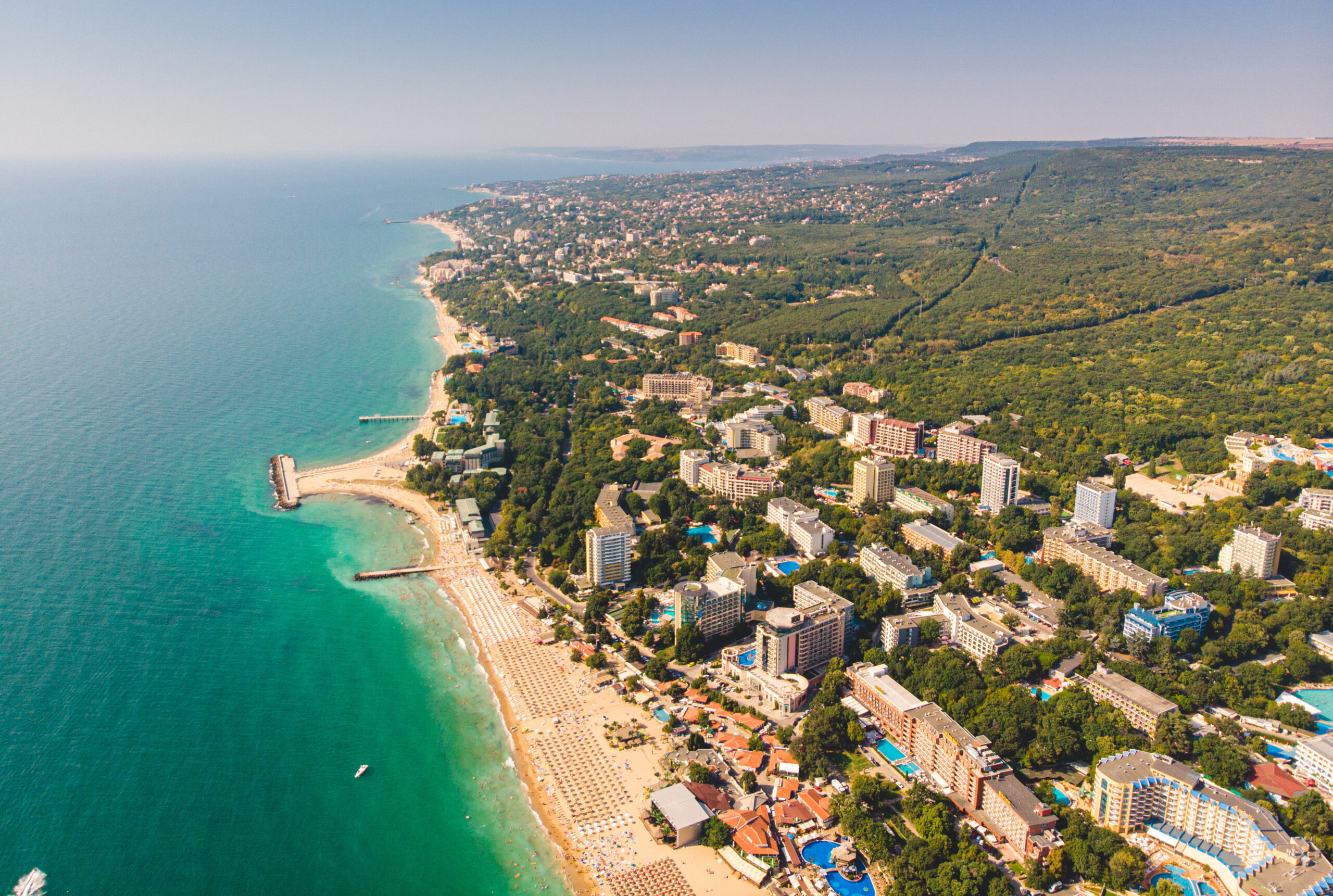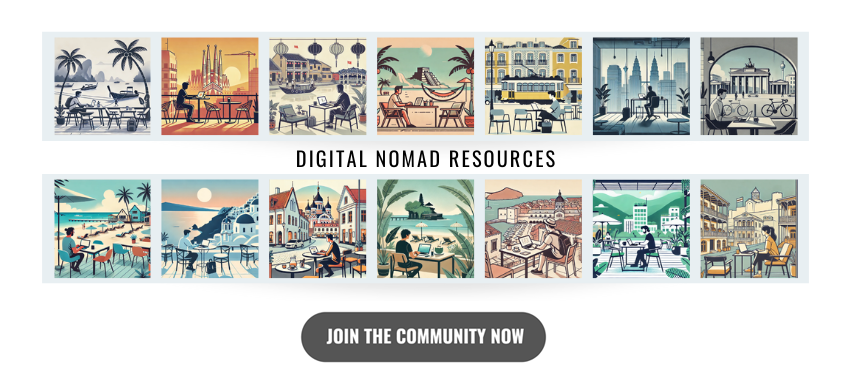Bulgaria might not immediately be at the top the typical digital nomad short list—but it’s quickly becoming one of Europe’s best-kept secrets. With blazing-fast internet, low living costs, stunning mountain and Black Sea scenery, and a flat 10% income tax rate, Bulgaria offers a compelling mix of affordability and quality of life. Add in vibrant cities like Sofia and Plovdiv, ancient ruins, and a welcoming cafe culture, and it’s no surprise remote workers are starting to take notice.
Quick Answer
Bulgaria just launched its official digital nomad visa in mid-2025, making it one of the newest legal bases for remote professionals in Europe. The visa is expected to open for applications in late 2025 and allows non-EU nationals to live and work remotely in Bulgaria for 12 months (renewable). Monthly costs typically range from $900 to $1,800 depending on lifestyle and location. With its Schengen entry, solid infrastructure, and growing coworking scene, Bulgaria is a smart pick for nomads seeking an underrated yet accessible European hub.
Digital Nomad Visa Overview
Bulgaria’s digital nomad visa, officially launched in June 2025, is designed for non-EU citizens working remotely for foreign clients or employers. It allows a one-year stay, renewable up to three years.
Key facts:
- Duration: 12 months, renewable up to 3 years
- Type: Type D residence permit with freelance/remote work basis
- Income requirement: Approx. €2,000–€2,500/month or equivalent savings
- Taxes: 10% flat income tax on foreign earnings (subject to treaty adjustments)
Why Consider Bulgaria?
For years, Bulgaria stayed off the typical digital nomad radar—but that’s starting to change. With its mix of fast internet, low living costs, emerging coworking hubs, and easy access to both the mountains and the Black Sea, Bulgaria offers a strong foundation for remote living.
In June 2025, the country officially approved a dedicated digital nomad visa, and applications are expected to open in September 2025. Combined with Bulgaria’s flat 10% income tax, recent entry into the Schengen Area, and affordable intra-European travel, it’s poised to become one of the most practical—and overlooked—bases for long-term remote work in Europe.
Best Cities for Remote Work
Sofia
As the capital and largest city, Sofia offers the most robust infrastructure for remote workers. It boasts a growing number of coworking spaces, reliable high-speed internet, and a strong international community. The city is also home to Bulgaria’s busiest airport, making it easy to travel within Europe and beyond. With excellent public transport, a lively food and nightlife scene, and access to nearby mountains for weekend getaways, Sofia strikes a balance between productivity and play.
Plovdiv
Plovdiv is Bulgaria’s second-largest city—but it feels more like a laid-back cultural enclave than an urban sprawl. Known for its Roman ruins, cobbled old town, and thriving arts scene, Plovdiv is popular among creatives and freelancers seeking inspiration without the hustle of a capital. It offers a lower cost of living than Sofia while still maintaining strong internet, good cafes, and several coworking options. If you prefer a slower pace with character and charm, Plovdiv delivers.
Varna
Set along the Black Sea coast, Varna combines beach-town vibes with urban convenience. It’s a favorite for nomads who want to mix work with sea views, especially during the summer months when the city comes alive with festivals, music, and outdoor events. While it quiets down in winter, Varna still offers decent infrastructure year-round, including reliable Wi-Fi, coworking cafes, and an international airport for seasonal escapes. It’s ideal for those who prioritize a coastal lifestyle without sacrificing connectivity.
Cost of Living in Bulgaria (2025)
| Expense Category | Sofia | Plovdiv | Varna |
| Rent (1BR Apartment) | $500–800 | $400–600 | $450–700 |
| Groceries | $250–400 | $200–350 | $220–370 |
| Dining Out | $150–300 | $100–200 | $120–250 |
| Transportation | $40–80 | $30–60 | $30–60 |
| Utilities + Internet | $100–150 | $90–130 | $90–140 |
| Coworking/Gym | $100–200 | $80–150 | $90–160 |
| Total Monthly Range | $1,140–2,230 | $900–1,690 | $1,000–1,880 |
Internet and Coworking
- Average internet speed: 80–100 Mbps in cities
- Fiber available in most urban areas
- Reliable 4G and growing 5G coverage
- Coworking hubs in Sofia (Betahaus, Puzl), Plovdiv (Cat & Mouse), and Varna (beachside options in summer)
Visa Requirements and Process
To apply for Bulgaria’s digital nomad visa, you’ll need:
- Valid passport (6+ months)
- Clean criminal record (translated/apostilled)
- Proof of remote employment or freelance income
- Proof of accommodation in Bulgaria
- International health insurance for 12 months
- Bank statements or proof of minimum income
Where to apply: Bulgarian consulates or the Ministry of Interior (on arrival)
Estimated processing time: 1–2 months
Lifestyle and Culture
Bulgaria is where East meets West: ancient monasteries, modern tech hubs, Thracian ruins, and ski resorts all coexist in a compact country. The pace of life is slower, the nature is vast, and the food is hearty and affordable.
You’ll find a warm expat community, EU access, and fewer crowds than most Western European hubs. English is spoken in major cities and coworking spaces, though not universally.
Winter Masquerade in Pernik
One of Bulgaria’s most unforgettable cultural experiences happens each January in the town of Pernik, just outside Sofia.
Known as Surva, the International Festival of Masquerade Games gathers Kukeri—men in fur-clad, horned costumes who dance, rattle bells, and chase away evil spirits in a centuries-old ritual.
The tradition dates back to Thracian and Slavic pagan roots, blending folklore and seasonal ritual with theatrical pageantry. The result is part performance, part community cleansing, and entirely unlike anything else in Europe.
If you’re in Bulgaria during winter, a visit to Surva offers a window into the country’s deeper mythologies—and the chance to witness a living tradition that’s both surreal and fiercely local.
Frequently Asked Questions
Can I work remotely in Bulgaria legally?
Yes. The 2025 digital nomad visa allows you to stay for 12 months (renewable) while working for a foreign employer or freelance clients.
How much income do I need to qualify?
Approximately €2,000–€2,500/month or equivalent savings.
Is the internet reliable for remote work?
Yes. Fiber and 4G/5G coverage are widely available in major cities.
What are taxes like?
A 10% flat tax applies to income, though international treaties may affect your liability.
Is Bulgaria safe for solo travelers and nomads?
Generally yes. Urban areas are safe with common-sense precautions.
What’s the best time of year to go?
Spring and autumn are ideal. Winters are cold but charming in the mountains; summers are lively, especially in coastal cities like Varna.
Can I bring dependents or a partner?
Yes, dependents can be included in the application process with supporting documentation.
Ready to make your digital nomad dreams a reality? Download our comprehensive Digital Nomad Visa Guide for detailed requirements and official resources for each destination.
Connect with fellow location-independent professionals by joining our exclusive Sojrn Digital Nomad Community for ongoing support, insider tips, and updates to enhance your borderless lifestyle.
